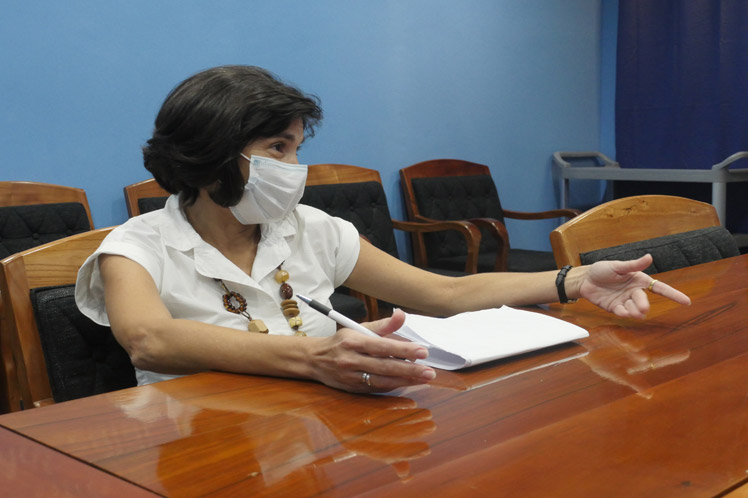Ms. Crombet, director of Clinical Research at the Center for Molecular Immunology (CIM, in Spanish), scientist and leader of several important projects for human health in Cuba and worldwide, praised this opportunity as a distinction to the Cuban scientific community.
It is by no means an individual recognition because contemporary scientific research is a collective construction, Ms. Crombet told Avances Médicos magazine.
Deeply involved in the development of molecules such as the lung cancer vaccine and monoclonal antibodies, Ms. Crombet also considered her TWAS membership inclusion as an honor and great commitment and responsibility, by representing Cuba in the global advances of science in the developing countries.
TWAS is an autonomous international organization, founded in Trieste, Italy, in 1983 by a group of scientists led by the late Pakistani Nobel Prize winner AbdusSalam.
In addition to these three new TWAS member, Cuba also has seven other researchers serving as members of this international organization including Lilliam Álvarez Díaz, Academic Secretary of the Cuban Academy of Sciences and Luis Herrera Martínez, recognized member of the scientific collective of the Center for Genetic Engineering and Biotechnology and currently Scientific and Commercial Advisor of the BioCubaFarma Group.
Without boasting, Ms. Crombet, also member of the International Panel of experts for the confrontation of Covid-19, explained the meaning of this new inclusion. In my particular case, it is by no means an individual distinction, it is a recognition to CIM, doctors of healthcare centers -who are the real protagonists of this research, since behind each medicine registered in Cuba, after each registered clinical trial there is a dedicated group, including physicians, nurses, pharmacists, CIM´s coordinating team -including labs, to those who guarantee good clinical practices, to our data management group, among others, she detailed.
To Cuban science and Fidel Castro´s work
In her opinion, it is also a tribute to Cuban science and to the leader of the Cuban Revolution Fidel Castro´s work, who since 1960, when Cuba faced with a high illiteracy rate, proclaimed that Cuba´s future had to be a future of science, because the task of the Revolution would be to open doors to science.
To Ms. Crombet, being member of this group is nothing more than the result of the work of the Revolution for health, education and science.
ef/pll/oda
(Taken from Avances Médicos magazine)









